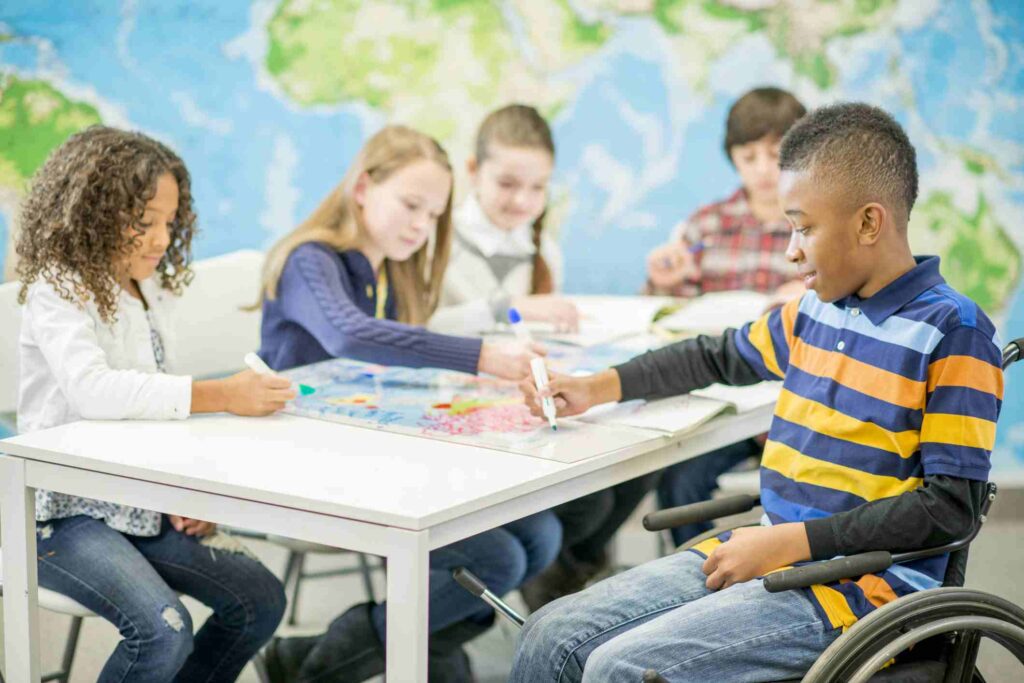Autism Is A Difficult Neurodevelopmental Disorder. Differences in behavior, communication, and social abilities define it. The term “limited, repetitive patterns of behavior” is frequently used to describe this. This means that persons with autism suffer differences in the way they communicate and interact socially, and their behavior may be repetitive or intensely focused. Additionally, people with autism frequently encounter sensory impairments that might change how they perceive and react to their environment. Autism is not an illness or disease. Autism Spectrum Disorder is another name for autism (ASD). The term “spectrum” describes the diverse set of traits, aptitudes, and skills that individuals with autism have. Autism does not have the same effects on everyone in the same way.
Learning Difficulties For Autistic Child
A childhood diagnosis of learning impairment is a lifelong disease. An estimated 4 in 10 autistic individuals struggle with learning slough tuition centre. No one method works for everyone when it comes to autism and schooling. The criteria for what constitutes a good educational program vary from child to child, as they do with so many other aspects of the autism spectrum. The needs of autistic children vary widely from kid to child, but the majority of them require some sort of support in the classroom. Some autistic children face greater academic obstacles than others, just like neurotypical kids. While some autistic individuals may carry on a conversation, others are nonverbal or experience selective mutism. Although every autistic child is different, there are some common areas where many autistic people suffer. When choosing the optimal educational environment for a child, parents should take into account their child’s sensory needs, emotional stability, executive functioning, and social skills.
Educational Options For Children With Autism
For students who have autism, there are several educational options available: a general education classroom, a resource classroom, a special education classroom, or an autistic-only environment. While some autistic students do best in isolated settings, others do better in inclusive classes. Everything is based on the child. The “Least Restrictive Environment” for a child’s education must be provided by school districts per the Individuals with Disabilities Education Act (IDEA) in the United States. This means that before putting the child in a more specialized setting, the district must take options like inclusion into account.
Special Education
In their neighborhood public school, autistic students are occasionally assigned to a special education or disability education classroom. If the teacher has experience working with autistic kids, this alternative might be beneficial for students who have learning impairments. The advantages of special education settings include smaller class sizes, greater opportunities to practice social skills, and inclusion of all students in extracurricular activities, electives, and events. However, special education or disability education classrooms are typically designed for kids who struggle academically but have neurotypical social development. The reverse issue plagues many autistic kids: they excel in academics but
suffer in social situations. A special education or disability education classroom may not be appropriate for many autistic students.
HomeSchooling
Many families are choosing to homeschool their autistic children since there are few other options available, and in many places, none at all. Many families may find this challenging because it necessitates having an adult stay at home to teach the child. This may involve a considerable financial burden for two-income families. This choice is frequently the most sensible, especially if ties with the neighborhood school system have soured. There are several online homeschooling choices if the thought of overseeing a child with autism overwhelms you.
Finding the right placement for a learner with autism science tuition in slough can take some time. To acquire the appropriate help, try to collaborate with the child’s teacher and the school system. If a kid is having difficulties, keeping track of the kind and frequency of their issues can help make the case for additional support or an alternative educational environment. Consider consulting with an educational lawyer or special education advocate if the school district shows opposition
Click here and read more
